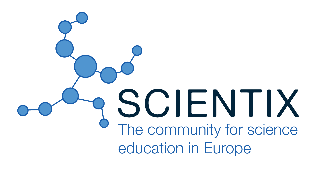Opening Minds to STEM Careers
SYSTEMIC-Scientix-STEMAlliance
Welcome to the Opening Minds to STEM Careers MOOC
On this page
Demand for STEM (Science, Technology, Engineering and Math) professionals and associated professionals is expected to grow by around eight percent between now and 2025. This means that Europe needs more young people to pursue STEM subjects and careers to become part of a much needed qualified workforce in the coming years. In the Opening Minds to STEM Careers MOOC, we will explore different ideas and we will introduce a number of tools to help you be an active actor in STEM career guidance processes.
Essentially, this course is meant to train and empower you in successfully introducing and attracting young people to STEM careers from an early age, as well as to learn about private and public initiatives on STEM education.
During the course, we will be reflecting, discussing and sharing on the topics above. Furthermore, you will also have the opportunity to find a community of like-minded professionals who can support each other in improving their classroom practices. We will be using a variety of online tools and social media outlets to communicate with each other and to engage in a number of peer review activities, as part of the course.
Course Topics
- STEM careers in schools and in the job market
- STEM careers pathways
- Career induction activities, materials and guidelines
- Gender stereotypes in STEM education
- How to balance the roles of teachers, mentors and parents
- Benefits of external school-to-work programs
- Career orientation events on STEM education
Prerequisites
The course is targeted at primary and secondary school teachers from Europe and beyond. However, it can also be of interest to secondary school teachers of any other subjects, as they also have an important role in career guidance.
Modules
- Module 1: STEM careers in schools and in the job market
- Module 2: STEM careers pathways I
- Module 3: STEM careers pathways II
- Module 4: Career induction activities, materials and guidelines
- Module 5: Gender stereotypes in STEM education
- Module 6: Balancing the roles of teachers, mentors, and parents
- Module 7: Benefits of external school-to-work programmes
- Module 8: Career orientation events on STEM education
Certification
You will receive digital module badges for every completed module of the course as well as a course badge and a course certificate upon completion of the full course.
Note to teachers from Portugal: You can get your successful participation in a European Schoolnet Academy course formally recognised as a valid continuous professional development, and thereby acquire the relevant number of training hours, by sending your certificate to the Conselho Científico e Pedagógico de Formação Contínua (CCPFC) at Rua do Forno, nº 30, 1º andar - apartado 2168, 4700 - 429 Braga, Portugal. For more information, please contact the CCPFC.
Course Staff
Disclaimer and Copyright
This MOOC is a result of the collaboration of three different projects:
SYSTEMIC, Scientix, and STEM Alliance.
The SYSTEMIC project is a joint initiative of both Ministries of Education and industry, with the overall objective of increasing young European’s interest in STEM careers and providing teachers with the appropriate pedagogical tools to enable them to teach STEM topics in a more attractive way.
Scientix, the community for science education in Europe, promotes and supports a Europe-wide collaboration among STEM teachers, education researchers, policymakers and other STEM education professionals.
The STEM Alliance – inGenious Education and industry, brings together Industries, Ministries of Education and education stakeholders to promote STEM education and careers to young European's and address anticipated future skills gaps within the European Union.





Scientix 3 is supported by the European Union’s H2020 research and innovation programme (Grant agreement N. 730009). SYSTEMIC is Co-funded by the Erasmus+ Programme of the European Union. The content of this course is the sole responsibility of the organizer and it does not represent the opinion of the European Commission (EC), and the EC is not responsible for any use that might be made of information contained.
All content on this course unless specified otherwise is licensed under a Creative Commons Attribution-ShareAlike 4.0 International License

